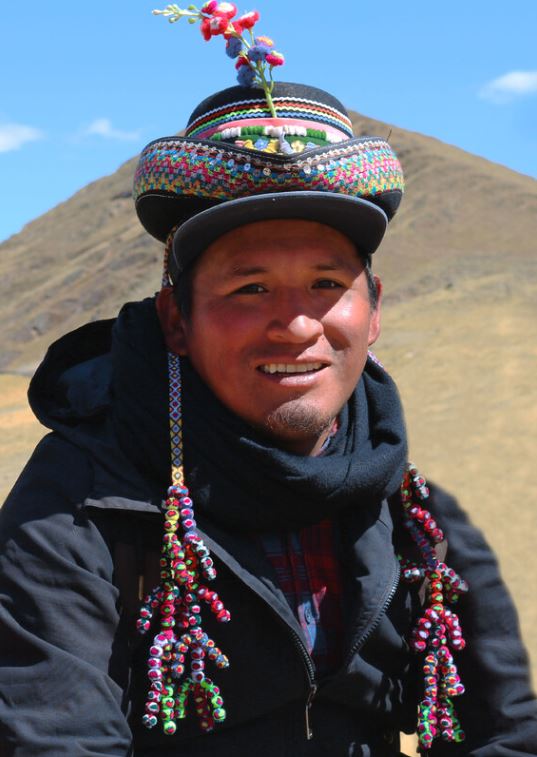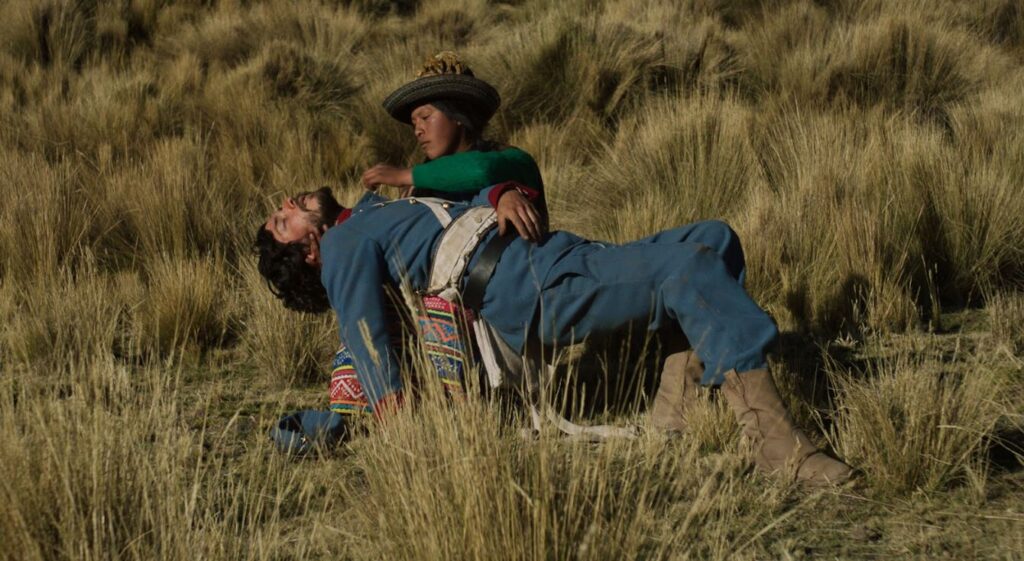Peru / 2023 / 85 min / Quechua and Spanish with English subtitles / Historical Drama
In the Peruvian Andes, Margarita, an Andean shepherdess finds Lautaro, a dying Chilean soldier who has managed to flee from a battle. She decides to take him to her home and take care of him. When her father finds out, he decides to hide him, putting his family at risk, with the only condition that he leaves when he recovers. Over time and despite the linguistic differences, the shepherdess and the soldier begin to establish an intimate relationship.
The film utilizes the indigenous people living in the Andes. They are not, as you can tell, professional actors. But you can see their lives in their faces and their movements. That breathes a cultural charm into the storyline that speaks the truth. ONCE UPON A TIME IN THE ANDES is an amazing accomplishment by writer-director-producer, Romulo Sulca. I have included the countries represented by the crew to show what a multicultural effort this production was.

DIRECTOR: Quechua filmmaker, develops his cinematographic activity in the central Andes of Peru. He holds a degree in Communication Sciences from the National University of Central Peru, with a master’s degree in Creative Writing of Audiovisual Script at the International School of Film and Television of San Antonio de los Baños, Cuba (EICTV) Talent Campus Buenos Aires (2013). He directed the short films “Osmany” (2017), “Rimas de carreo” (2018) and “Sara” (2019) winners of the short film award by DAFO and selected in numerous international festivals. With the documentary “Teloneras” (2020) he won the ‘Audience Award for Best Peruvian Film’ at Transcinema International Film Festival. His fiction debut feature “Érase una vez en los Andes” (2023) was made with funding from DAFO and Ibermedia Program. He is currently developing his second feature fiction film “Ayahuanco”
DIRECTOR STATEMENT: A film we made after graduating from EICTV – Cuba, with friends with whom I shared classrooms, the shooting took place in the central Andes of Peru, above 5500 MNSM and in an indigenous language such as Quechua. The film deserves to be seen and discussed.
¡Tupananchiskama! (“Let us wait to meet”).
Contact: sulcaricra@gmail.com
Special Guest:
Sponsored by:


